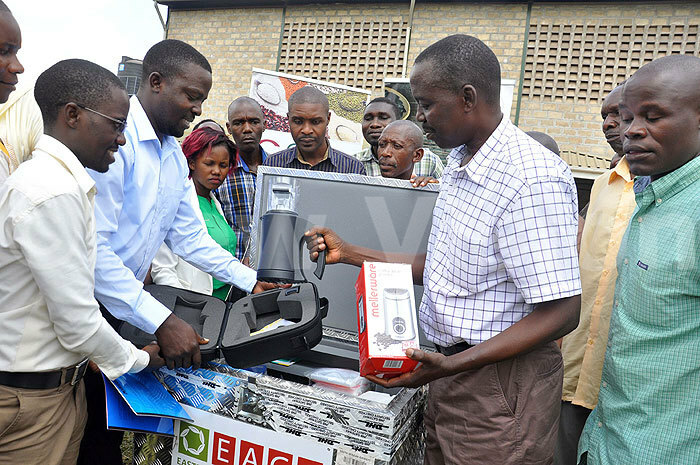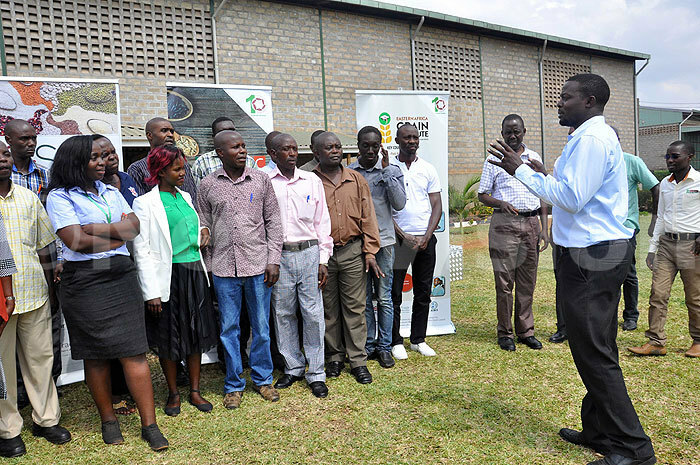EAGC gives equipment to detect aflatoxins
“Aflatoxins are dangerous to human health and must be avoided."
Two firms involved in grain trade have received equipment worth sh100m to detect aflatoxins - poisonous and cancer-causing chemicals that are produced by certain molds.
Aflatoxins pose a huge health threat to humans.
The equipment was given by East Africa Grain Council (EAGC) during the training on aflatoxins at Agroways Warehouse in Jinja.
EAGC Uganda acting country manager Benjamin Aijuka said Uganda loses sh128b annually because of aflatoxins.
"Aflatoxins are dangerous to human health and must be avoided. Ugandans must be health-conscious and eat food that is free from aflatoxins," Aijuka told participants, who included grain millers, warehouse operators and gran trade dealers.


Here, Benjamin Aijuka addresses participants during the training. (Credit: Francis Emorut)
The equipment will enable grain traders to detect and control aflatoxins in grains traded.
Participants were told of EAGC's commitment to promoting regional trade of quality grain that meets the East African standards.
"Millers need to procure grains from certified warehouses to minimize the risk of buying affected grain," said Aijuka.
Boaz Ndisio, who is an expert in aflatoxins, was one of the facilitators at the training. He said quality management is a critical element in warehouse operations.
He said the grading equipment among other types of equipment will enable the warehouse to take necessary measures to ensure that grains received and stored meet the required quality standards.
The beneficiaries of the detecting equipment were Agroways Warehouse and Katine Joint Farmers Cooperatives based in Soroti, eastern Uganda, which were received by managing director Herbert Kyeyamwa and Opio Eluru respectively.